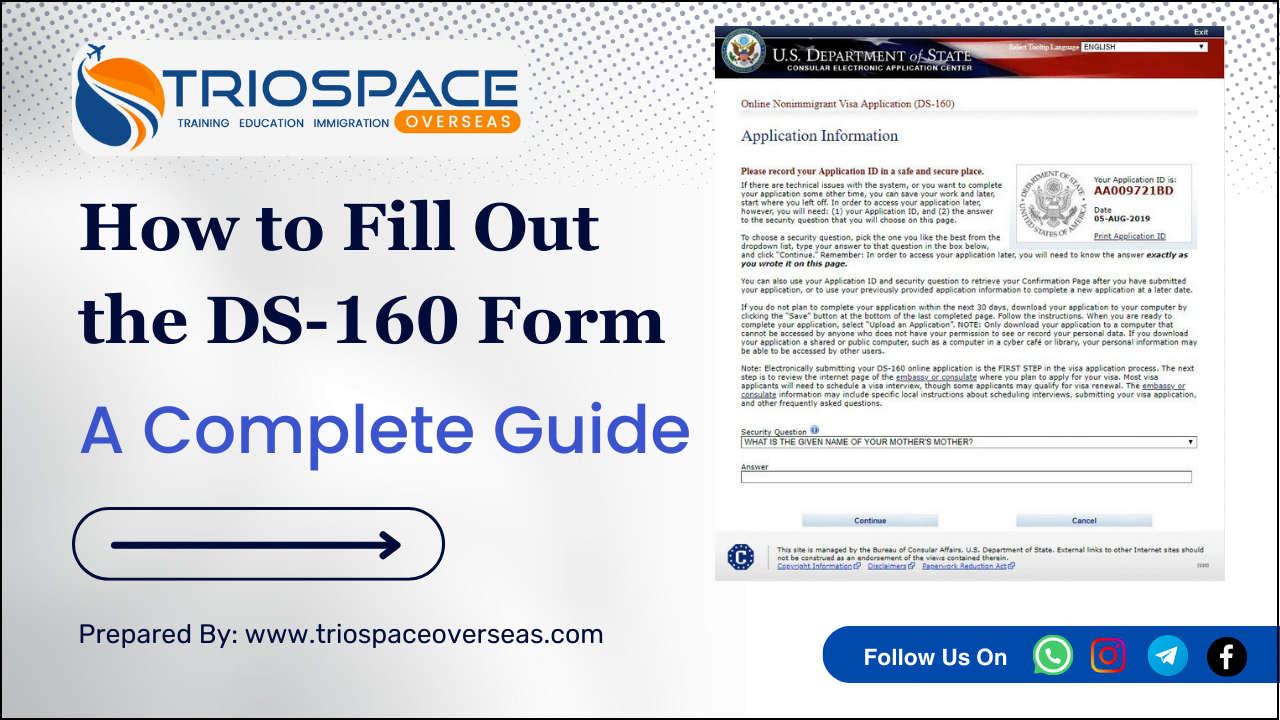
Your Complete Student’s Guide To Opening A Bank Account In The UK
Opening a bank account in the Uk is one of the first steps to managing your finances as a student in the UK. Whether you’re a local or an international student, having a bank account is crucial for handling everyday expenses, paying bills, and receiving funds. This comprehensive guide will walk you through everything you need to know to get started, from understanding why a bank account is essential to choosing the right bank and managing your account effectively. Let’s dive in!
Why Do You Need a Bank Account as a Student?
Convenience
A bank account makes handling everyday expenses, paying bills, and receiving funds easy and efficient. Instead of dealing with the hassle of carrying cash and making in-person payments, a bank account allows you to use a debit card, set up direct debits, and manage your money online or through a mobile app. This convenience is especially beneficial for students who have a busy schedule and need to make quick and secure transactions.
Safety
Keeping your money in a bank is far safer than carrying cash around. Banks offer multiple layers of security, including encryption and fraud detection, to protect your funds and personal information. In case your debit card is lost or stolen, you can quickly block it and prevent unauthorized transactions. This level of security gives you peace of mind, knowing that your money is safe and accessible.
Building Credit
Starting a bank account helps establish your financial history in the UK, which is essential for future financial endeavors like renting an apartment, taking out a loan, or applying for a credit card. A good financial history shows lenders that you are responsible with money, making it easier to access credit when you need it. For international students, building a financial history in the UK can also make it easier to stay in the country after graduation if you choose to work or pursue further studies.
Know more about the MBA in UK: Top Business Schools
Types of Bank Accounts Available for Students
Basic Bank Account
Basic bank accounts offer essential banking services with no frills. They are ideal for managing simple financial transactions such as depositing money, withdrawing cash, and making payments. Basic accounts usually come with a debit card and online banking access but may have limited features compared to student-specific accounts. They are a good option for students who want a straightforward way to manage their money without any additional perks or fees.
Student Bank Account
Designed specifically for students, these accounts often come with perks such as interest-free overdrafts, which can be a lifesaver during tight financial times. Student accounts may also offer benefits like free railcards, cashback on purchases, or discounts on student-related expenses. The interest-free overdraft is particularly useful, as it allows you to borrow money without paying interest, helping you manage your finances when you have unexpected expenses or delays in receiving funds.
International Student Account
Tailored for international students, these accounts may offer benefits like fee-free international transfers and multi-currency options. International student accounts are designed to meet the unique needs of students from abroad, making it easier to transfer money between your home country and the UK and manage different currencies. Some banks also offer support services specifically for international students, such as multilingual customer service and guidance on UK banking regulations.
Know more about the Top 6 Best Courses in the UK
Choosing the Right Bank To Opening A Bank Account In The UK
When choosing a bank, consider the following factors:
Major Banks in the UK
Some of the popular banks in the UK include Barclays, HSBC, Lloyds, NatWest, and Santander. These banks have extensive branch networks and offer a range of student-friendly products and services. Researching the major banks can help you understand the different options available and find a bank that meets your needs.
Factors to Consider
– Location: Choose a bank with branches and ATMs near your university or accommodation. This makes it easier to access your money and get help if you need it.
– Fees: Look for accounts with low or no monthly fees, and be aware of any charges for overdrafts, foreign transactions, or using ATMs outside the bank’s network.
– Services: Consider the services offered, such as online and mobile banking, customer support, and additional features like budgeting tools or rewards programs.
– Student Perks: Some banks offer attractive benefits for students, such as free railcards, discounts on travel and entertainment, or cashback on purchases. These perks can add significant value to your bank account.
Documents You Need to Open a Bank Account
Before you start your application, make sure you have the following documents:
Identification
Your passport and student ID are the primary forms of identification required by banks. A valid passport proves your identity and citizenship, while a student ID confirms your status as a student.
Proof of Address
This can be a utility bill, tenancy agreement, or a letter from your university. Proof of address is necessary to verify where you live in the UK. If you are an international student and just arrived, you might be able to use a letter from your university confirming your accommodation details.
Proof of Student Status
A university acceptance letter or a current student ID serves as proof of your student status. This document shows that you are enrolled in a course of study, which is important for opening a student bank account and accessing student-specific benefits.
Additional Documents
If you’re an international student, you may need your visa or Biometric Residence Permit (BRP). These documents confirm your right to live and study in the UK and may be required by banks as part of their identification process.
Step-by-Step Process to Open a Bank Account
1. Research
Compare different banks and accounts to find the best fit for your needs. Look at the features, fees, and student benefits offered by each bank. Online reviews and recommendations from other students can also provide valuable insights.
2. Application
Decide whether to apply online or visit a branch in person. Many banks offer online applications for student accounts, which can save you time and effort. However, visiting a branch may be beneficial if you have questions or need assistance with the application process.
3. Appointment
If you need to visit a branch, schedule an appointment and know what to expect during the meeting. Bring all necessary documents, and be prepared to answer questions about your financial needs and student status. The bank representative will review your application and documents, and guide you through the process.
4. Activation
After your account is approved, you will receive your debit card and instructions for setting up online banking. Activate your debit card and create your online banking account to start managing your money. Make sure to set up any necessary security features, such as two-factor authentication, to protect your account.
Tips for Managing Your Student Bank Account
Budgeting
Use tools and apps to track your spending and stick to a budget. Many banks offer budgeting tools within their online banking platforms, or you can use third-party apps like Mint or YNAB. Creating a budget helps you manage your money, avoid overspending, and save for future expenses.
Overdrafts
Understand the terms of your overdraft and avoid unnecessary fees by staying within your limit. An overdraft can be a helpful tool for managing short-term cash flow issues, but it’s important to use it responsibly. Keep track of your spending and make a plan to repay any overdraft balances as soon as possible.
Security
Protect your account by using strong passwords and being cautious of phishing scams. Never share your banking details with anyone, and be wary of suspicious emails or messages asking for your personal information. Regularly monitor your account for any unauthorized transactions and report them to your bank immediately.
Common Issues and How to Resolve Them
Application Rejection
If your application is rejected, understand the common reasons and take the necessary steps to resolve them. Common reasons for rejection include missing documents, insufficient proof of address, or issues with your identification. Contact the bank to find out why your application was rejected and what you can do to correct the issue. In some cases, providing additional documentation or clarification may be enough to get your application approved.
Lost/Stolen Cards
Report lost or stolen cards immediately to prevent unauthorized transactions. Most banks have a 24-hour hotline for reporting lost or stolen cards. Once you report the issue, the bank will block your card to prevent any fraudulent use and issue a replacement card. In the meantime, you may be able to use mobile banking or a digital wallet for transactions.
Bank Charges
Be aware of any fees associated with your account and know how to dispute any unexpected charges. Regularly review your bank statements and transaction history to identify any unusual fees. If you find a charge you don’t recognize or believe is incorrect, contact your bank’s customer service to dispute the fee and request a refund if applicable.
Additional Resources and Support
University Financial Services
Many universities offer financial advice and support services to help you manage your money. These services can include budgeting workshops, one-on-one financial counseling, and emergency financial assistance. Check with your university’s student services or financial aid office to learn more about the resources available to you.
Bank Support
Contact your bank’s customer service for assistance with any account-related issues. Most banks offer multiple ways to get support, including phone, email, and live chat. Don’t hesitate to reach out if you have questions or need help with your account.
Online Resources
Utilize websites and tools dedicated to financial literacy for students. Websites like MoneySavingExpert and The Student Room offer advice on managing your finances, understanding banking terms, and making the most of your student bank account. Additionally, many banks have educational resources and financial literacy programs designed to help students.
Conclusion
Opening a bank account in the UK as a student is a straightforward process when you know what to expect. This guide has provided you with all the essential information to make the process easier, from choosing the right bank and gathering the necessary documents to managing your account and resolving common issues. Don’t hesitate—start the process today and take control of your finances. If you have any questions or need further assistance, feel free to reach out to your bank or university’s financial


















